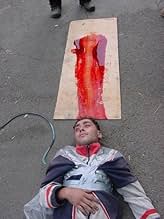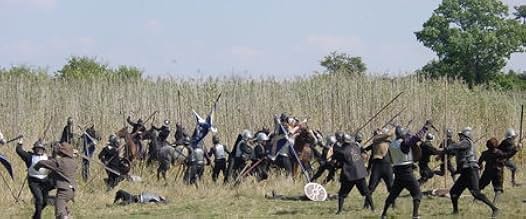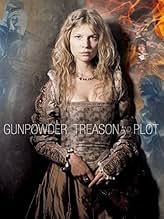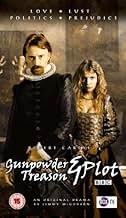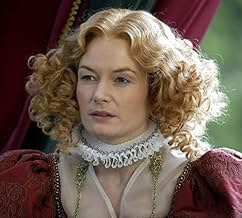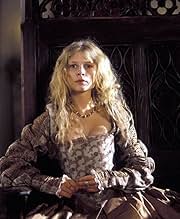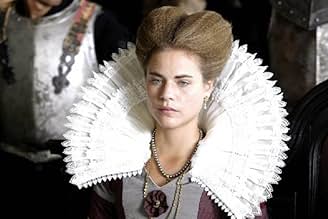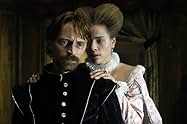Mini series depicting the turbulent and bloody reigns of Scottish monarchs Mary, Queen of Scots and her son King James VI of Scotland who became King James I of England and foiled the Gunpow... Read allMini series depicting the turbulent and bloody reigns of Scottish monarchs Mary, Queen of Scots and her son King James VI of Scotland who became King James I of England and foiled the Gunpowder Plot.Mini series depicting the turbulent and bloody reigns of Scottish monarchs Mary, Queen of Scots and her son King James VI of Scotland who became King James I of England and foiled the Gunpowder Plot.
- Awards
- 4 wins total
Featured reviews
Part one featured Mary Queen of Scots taking over in Scotland 1561. The sets were disappointing but it should be noted that IRL, MQS was less than thrilled with her Scottish royal accommodations after her raising in France. Characters were believable. Complaints about actor accents in period pieces are easy to set aside because IRL English royals mostly used French anyway.
This part had very little to do with the main half, except to take the story straight to the grown-up version of what MQS worked so hard to create, James 6+1, first king of combined Brits.
Part two has a new cast and shows religious strife around 1605. Minor characters make their cases straight to the camera, relieving us of time spent with their backstories... I'll take this exposition method. We learn the events creating the Guy Faukes UK holiday. As for the odd title: "English Folk Verse: Remember, remember!
The fifth of November, The Gunpowder treason and plot; I know of no reason Why the Gunpowder treason Should ever be forgot!"
The series is not helped either by some substandard acting. Clemence Posey, with her bizarre French-American-Scottish accent, is mostly inaudible as Mary Queen of Scots and seems to take most of the cues for her performance from Mila Jovovitch's disastrous turn as Joan of Arc in 'Messenger'. Sira Stampe is robotic as James I's wife, while Robert Carlyle's James is as unconvincing as he is unhinged. Also detracting from our enjoyment are the understaffed battle scenes, the histrionic tone, and a decidedly anachronistic portrayal of sexuality.
Surprisingly, given McGovern's own politics, there's almost no hint of republicanism here, although within a few decades Britain was engulfed by a civil war that disputed absolutely the relevance of monarchy: perhaps this is ignored because it was a Protestant rebellion. Instead, we get a boring, linear drama of good queen Mary, bad queen Elisabeth and mad king James. I'm still certain that somewhere, behind the propaganda, there's an interesting story - how did hatred of Catholocism spread so rapidly when only a handful of years previously, everyone in England was Catholic? But this film does little to open one's eyes.
The title brings to mind "Guy Fawlkes", but the mini-series is actually the story of Mary, Queen of Scots - a tale which is amongst the most dramatic in the whole of Scottish history.
Given that all Scottish school children study this period in great detail (myself included!), the responsibility of all concerned is high.
It was with great delight that I found the series an honest and compelling human drama, and the (historically known) actions of the characters made perfect sense in the light of the characterisations and script.
I was concerned that the whole affair would be dragged down by either the weight of historical authenticity or the need to create a drama for modern sensibilities.
The historical ambiguities in the character of Mary were perfectly realised as drama: the transition from a French childhood to become a champion of the Scottish cause was credible. Her involvement in political assassinations was cleverly presented as "for the good of Scotland" rather than as cold-hearted scheming. So in this drama Mary is a heroine, though historians will argue endlessly on this one. My recall of school history is not good enough to know where liberties have been taken with historical fact.
Some flaws were present - the character of David Rizzio was not fleshed out sufficiently. The feel of the production could be criticised a little as a McGovern "housing estate drama" in costume e.g. the simple-minded Protestant/Catholic vein pervading the production. However, as the drama really gets going through the romance between Mary and her "bit of Scottish rough" (Lord Bothwell), perhaps one should acknowledge the universality of the human condition.
This is not an "Elizabeth" which re-wrote the book for cinematic historical realisations. However, "Gunpowder, Treason and Plot" is a likable and worthy production, which may not be absolutely top notch, but does seem a little tucked away on BBC 2 on a Sunday evening, when it deserves wider viewing.
I await the remaining episodes with interest.
Judging by the other comments some people found McGovern's style too harsh, that he belittles the both Royal family and the Protestant and Catholic branches of church, and overuses sex and violence. It's a fair criticism, but so many over-starched interpretations of British history have been made that this gritty drama becomes a breath of fresh air.
The show is evenly divided into two parts, both riveting stories. The first is the reign of Queen Mary I of Scotland, a French Catholic girl now ruling over Protestant Scotland. Clemence Poesy turns in a brilliant performance as the young queen faced with her conniving half-brother Lord James, Queen Elizabeth I of England, her misogynistic husband Lord Darnley, and her brash suitor the Lord Bothwell. The whole story is turbulent, as a state of war with the English gradually precipitates.
The second part is much higher drama, though. It is concerned with Mary's son James I, a repugnant, bitter cripple, who promises the Catholics tolerance, and then reneges on his promise at the behest of the manipulative Lord Cecil, one of the most powerful men in England. This proves the catalyst for the famous attempted bombing of the houses of parliament on November 5, lead by the ruthless Spaniard Guy Fawkes.
It is true that McGovern revolves the entire show about the us-and-them viewpoint of the Catholic and Protestant, BUT this works to great effect. Emphasising the conflict in this war really ups the ante for the drama, making for some very high-octane television. Add to this brilliant performances by Robert Carlyle, Tim McInnerny, Kevin McKidd, Sam Troughton, and Michael Fassbender (Playing Guy Fawkes as a silent Clint Eastwood type delightfully)
This is, without a doubt, the greatest telemovie I've ever seen. However, if you're at all squeamish this definitely isn't for you: this is history with the filthy bits left in for a change...
Did you know
- TriviaThe title is taken from the nursery rhyme about Guy Fawkes and the Gunpowder Plot. Many versions of the rhyme exist, and its origins are unclear. But most begin with these lines: "Remember, remember / the fifth of November / the Gunpowder Treason and Plot. / I know of no reason / why the Gunpowder Treason / should ever be forgot."
- GoofsAt the beginning Mary is depicted as a young, unmarried girl who had spent 13 years in exile in France. Actually, she was a widow. She had been married to the French king who had died very young.
- Quotes
Bothwell: Forgive me.
Mary, Queen of Scots: How's your head?
Bothwell: Sore.
Mary, Queen of Scots: I could remove it for you.
Bothwell: Well, that would do the trick, aye.
Mary, Queen of Scots: You caused Lord Darnley great offense, you called Lord Darnley a long streak of English piss!
Bothwell: Then I must apologize.
Lord Darnley: I thank you.
Bothwell: 'Twas English *pish*.
Lord Darnley: [pause] Banishment, I think.
Bothwell: Anywhere but France.
Details
- Release date
- Countries of origin
- Official sites
- Language
- Also known as
- Conspiración, traición y muerte
- Filming locations
- Production companies
- See more company credits at IMDbPro
Contribute to this page


